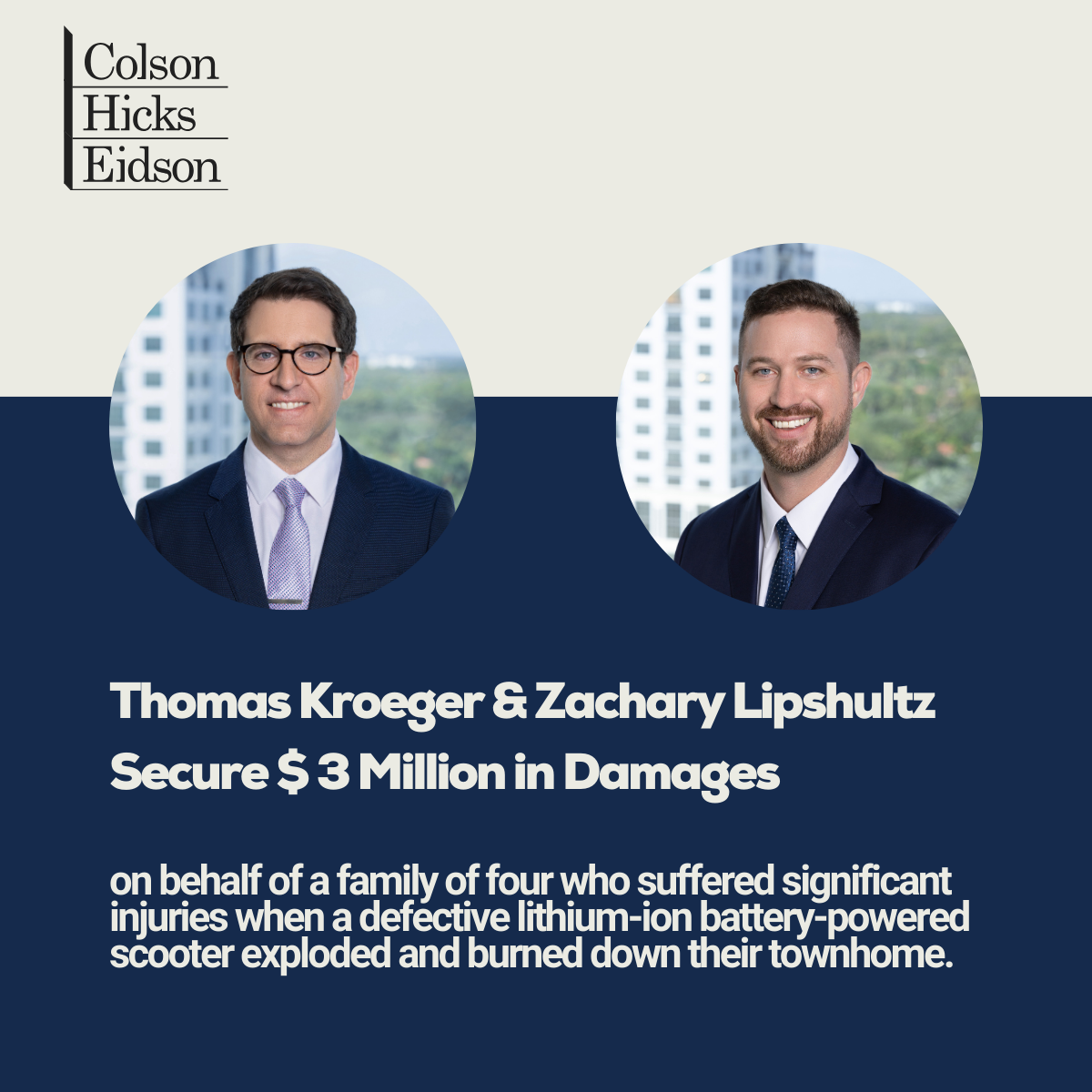In September 2019, a Connecticut pharmacy notified the U.S. Food and Drug Administration (FDA) that it had found the cancer-causing chemical N-Nitrosodimethylamine (NDMA) in their Zantac inventories and its generic form, ranitidine.
Sanofi, Zantac’s brand-name manufacturer, and 14 generic manufacturers recalled the medication in the United States. Pharmacies like CVS, Rite Aid, Walgreens, and Walmart scrambled to yank both the prescription and over-the-counter formulas of Zantac from their shelves.
In the spring of 2020, after additional testing, the FDA discovered ranitidine presented a real risk to public health. The agency requested all manufacturers of ranitidine products immediately remove all prescription and over-the-counter ranitidine drugs from the market. The FDA’s recall also included the drugs valsartan and metformin.
If you or a loved one took Zantac and have been diagnosed with cancer, you need to speak to Maimi’s Colson Hicks Eidson’s Zantac cancer attorneys.
What went wrong with Zantac?
In 1983, Zantac was approved as a prescription drug in the U.S. Developed by Glaxo, a European pharmaceutical company, it became the 50th most prescribed drug rising to 15 million prescriptions a year. Its over-the-counter form sold millions more.
Zantac is a histamine-2 or H2 blocker, better known as antacids. These antacids reduce the amounts of stomach acid and are commonly used to treat heartburn and acid reflux. More severe cases of these conditions, including peptic ulcers, gastroesophageal reflux disease, and related conditions are treated with the prescription-strength Zantac.
The problem is some ranitidine medications contain a contaminant known as N-Nitrosodimethylamine (NDMA). Over time, the NDMA impurity increased in some of these ranitidine products and resulted in unacceptable levels of NDMA present in medications available to consumers.
The recall came after the FDA, the U.S. Environmental Protection Agency (EPA), and the World Health Organization (WHO) all classify NDMA as a cancer-causing carcinogen, and the International Agency for Research on Cancer (IARC) classifies NDMA as a 2A carcinogen.
What do you need to know about Zantac now?
Many people were diagnosed with cancer after taking Zantac that have had no history of cancer in their families or genetic markers for cancer. The one similarity in all of these cases is their exposure to NDMA.
A list of possible cancers and other health issues linked to Zantac usage may include:
- Bladder cancer and bladder removal
- Breast cancer
- Colon cancer
- Crohn’s disease
- Esophageal cancer
- Kidney cancer and kidney removal
- Liver cancer
- Melanoma
- Ovarian cancer
- Primary pulmonary hypertension (PPH)
- Prostate cancer
- Stomach cancer
What you should do about it?
Because of the large number of plaintiffs in this litigation, the U.S. Judicial Panel on Multidistrict Litigation has consolidated hundreds of lawsuits in the Southern District of Florida in February 2020.
The Zantac cancer attorneys at Colson Hicks Eidson are taking cases for those who have taken Zantac and been diagnosed with cancer due to its use. We are a nationally recognized firm and have extensive experience handling cases like this. We have the resources and the drive to take on the big pharmaceutical companies.
Contact us for a free consultation by clicking here or by calling us at 305-476-7400.





